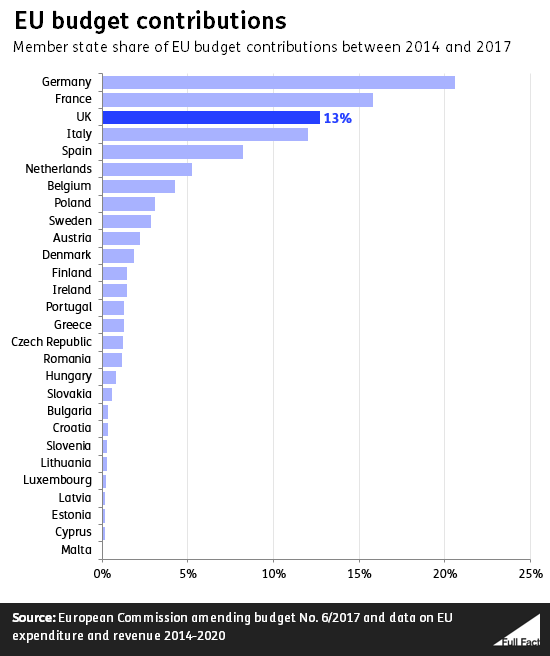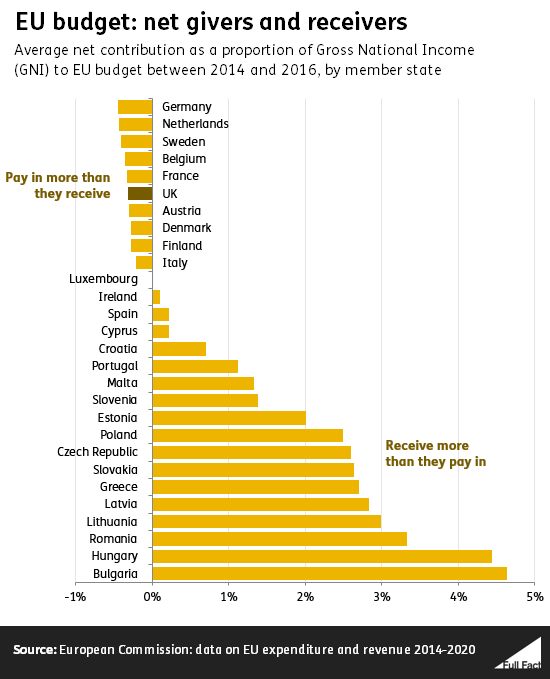What was claimed
The UK is one of the three countries that puts the most money into the EU budget.
Our verdict
Correct.
The UK is one of the three countries that puts the most money into the EU budget.
Correct.
“With all the money that we put into it (the EU), we are one of the three countries that put the most money into it”.
BBC Question Time audience member, 12 July 2018
This is correct, referring to the EU budget. The UK has been the third or fourth largest contributing country to the EU budget in recent years, and of the 28 EU members is one of 10 to contribute more than it gets back in receipts.
The UK also gives and receives much more money via trade with other EU countries, so transactions with the EU budget aren’t the full story when it comes to the UK’s economic relationship with the rest of the EU.

Honesty in public debate matters
You can help us take action – and get our regular free email
Each EU member state has to contribute money to the EU budget each year, and each member state gets funding back which is spent in their country on various kinds of projects.
Payments into the EU come in three types. The biggest by far is a payment based on the size of each country’s economy, called a GNI (Gross National Income)-based contribution. Countries also pay money based on how much they make in VAT, and on customs duties on their imports from countries outside of the customs union.
The UK, being one of the EU’s largest economies, pays more than most members. Only Germany and France consistently contribute more funding, while Italy pays about the same amount.
The UK’s rebate is a discount on its contributions so it reduces what it would otherwise pay, and increases what other member states pay. Without the rebate the UK would be the second largest contributor behind Germany.
Factoring in money that comes back as well, the UK is one of 10 countries that pay more in than they get back. Relative to the size of their economies, Germany and the Netherlands are the biggest contributors and Bulgaria and Hungary are the biggest receivers.

When the UK leaves the EU, it won’t continue to pay annual budget contributions, although it will settle a divorce bill agreed with the EU to settle outstanding liabilities, and the government has already indicated that, until at least 2022, it will continue to spend some money on the areas where the EU currently gives us funding.
As we factchecked recently, that means there is no guaranteed extra money—or ‘Brexit dividend’—to pay for public services as a result of ending the UK’s payments to the EU budget.
Full Fact fights for good, reliable information in the media, online, and in politics.
Bad information ruins lives. It promotes hate, damages people’s health, and hurts democracy. You deserve better.